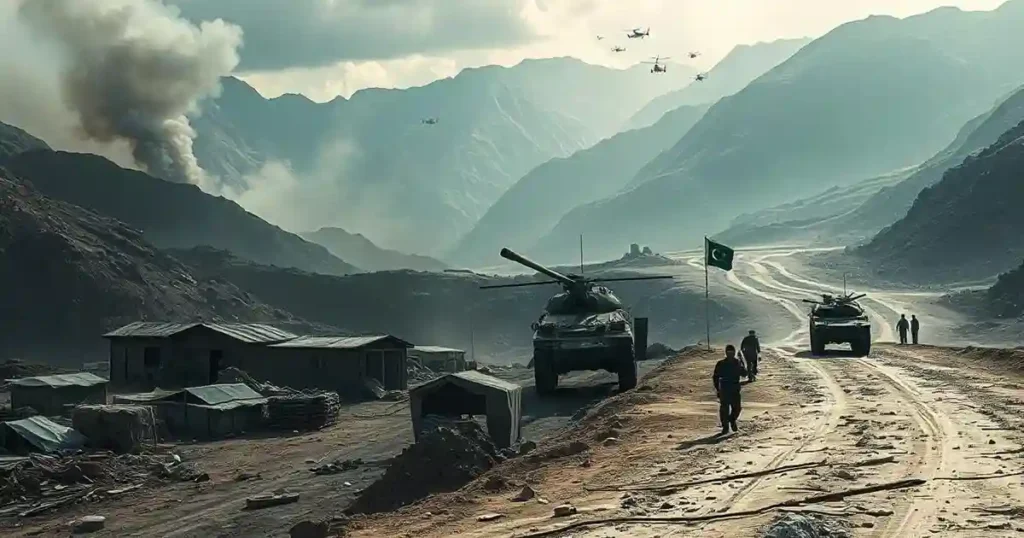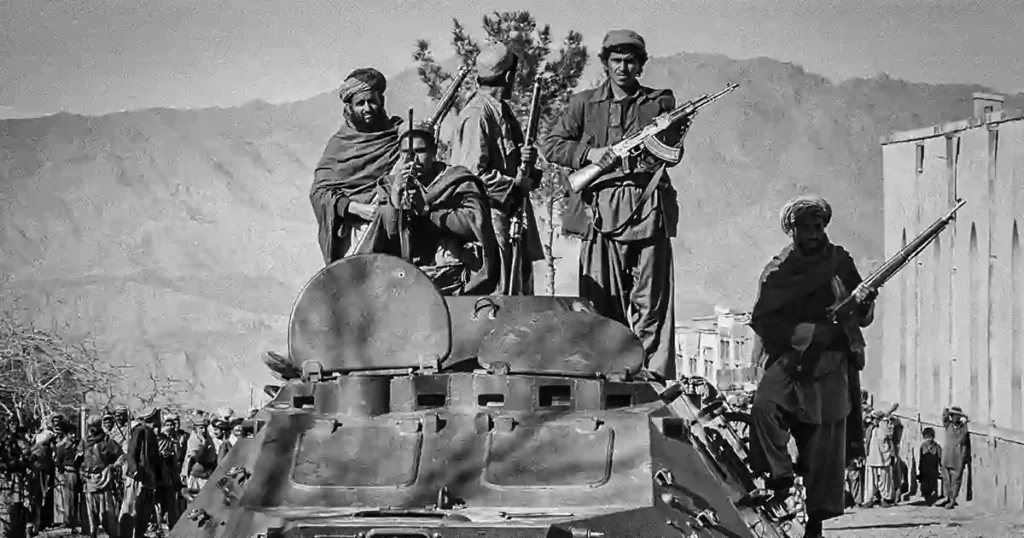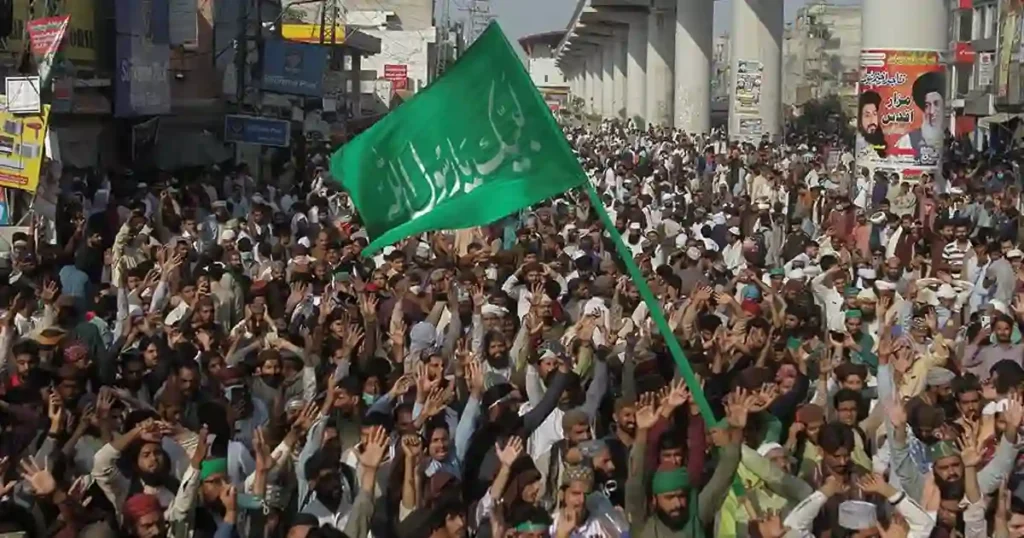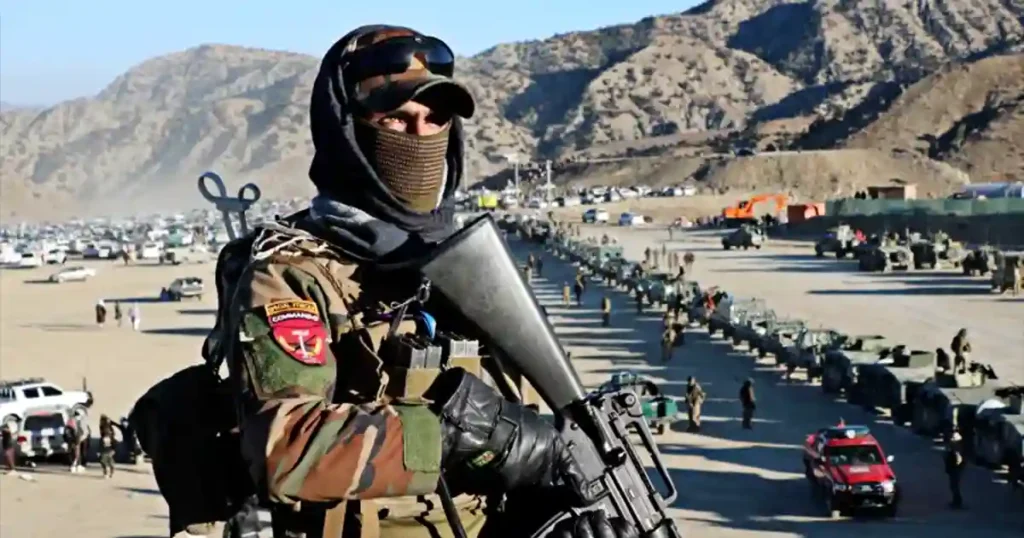The relationship between Pakistan and Afghanistan has been a focal point in South Asia’s geopolitical landscape, often defined by overlapping narratives of cooperation, conflict, and clandestine alliances. Among the most controversial aspects of this relationship is Pakistan’s role in fostering and supporting the terror network in Afghanistan. From nurturing extremist factions during the Cold War to supporting the Taliban’s rise in the 1990s, Pakistan’s involvement has been both strategic and complex. However, in recent years, Pakistan has found itself at odds with some of the very groups it once supported. This apparent volte-face raises a fundamental question: Why is Pakistan now fighting the Afghanistan-based terror networks it once helped build?
Historical Context: The Birth of the Terror Network

To understand Pakistan’s current stance, it is essential to trace the origins of its involvement in Afghanistan’s terror network.
The Cold War and the Soviet Invasion

During the late 1970s and 1980s, the Soviet Union’s invasion of Afghanistan set the stage for Pakistan’s initial involvement. As a frontline state, Pakistan became a crucial ally of the United States in its efforts to counter Soviet expansionism. The Inter-Services Intelligence (ISI), Pakistan’s intelligence agency, played a pivotal role in channeling U.S. and Saudi funds to Afghan Mujahideen groups. These groups, trained and armed in Pakistan, were instrumental in driving out Soviet forces.
While the Mujahideen’s primary goal was to resist Soviet occupation, their ideologies often aligned with extremist Islamic principles. This laid the groundwork for the emergence of more radical factions, including the Taliban.
The Taliban Era

After the Soviet withdrawal in 1989 and the subsequent collapse of the Afghan government, Afghanistan descended into civil war. Amid this chaos, the Taliban emerged in the mid-1990s, with strong support from Pakistan. Islamabad saw the Taliban as a means to achieve strategic depth against India and secure a pro-Pakistan regime in Kabul. The Taliban’s rule from 1996 to 2001 cemented Pakistan’s influence in Afghanistan, but it also turned the country into a haven for extremist groups, including Al-Qaeda.
Post-9/11 Dynamics

The 9/11 attacks in 2001 brought global attention to the Afghanistan-Pakistan terror nexus. The U.S.-led invasion of Afghanistan toppled the Taliban regime, but many of its leaders found refuge in Pakistan. Despite Pakistan’s official support for the U.S.-led War on Terror, elements within the ISI were accused of continuing to back the Taliban and other insurgent groups to counter Indian influence in Afghanistan.
The Turning Point: Pakistan’s Shift in Strategy

Over the past decade, Pakistan’s relationship with the Afghan terror network has undergone a significant transformation. This shift can be attributed to several factors:
The Rise of Domestic Terrorism
Pakistan’s support for extremist groups began to backfire in the mid-2000s, as homegrown terrorist organizations like the Tehrik-i-Taliban Pakistan (TTP) turned against the state. These groups, once allied with or inspired by the Afghan Taliban, began targeting Pakistani civilians, military personnel, and infrastructure. High-profile attacks, such as the 2014 Peshawar school massacre, underscored the grave threat posed by domestic terrorism.
Changing Geopolitical Realities
The U.S. withdrawal from Afghanistan in 2021 and the Taliban’s return to power have significantly altered the regional landscape. While Pakistan initially welcomed the Taliban’s victory, the group’s unwillingness to curb the activities of the TTP has strained relations. Pakistan now faces the challenge of dealing with an emboldened TTP operating with impunity along the Afghan-Pakistan border.
Economic and Political Pressures
Pakistan’s struggling economy and its dependence on international financial institutions have also influenced its approach. To secure aid and avoid international isolation, Pakistan has had to demonstrate a commitment to counterterrorism. The Financial Action Task Force (FATF) placed Pakistan on its “grey list” for insufficient measures against terror financing, prompting Islamabad to crack down on militant groups.
Why Is Pakistan Fighting the Network It Built?

The decision to confront the Afghanistan-based terror network is driven by a combination of security, political, and economic considerations.
Protecting National Security
The resurgence of the TTP and its alliance with the Afghan Taliban pose a direct threat to Pakistan’s stability. The TTP’s demands, including the establishment of Sharia law in tribal areas, challenge the sovereignty of the Pakistani state. Islamabad’s military operations, such as Zarb-e-Azb and Radd-ul-Fasaad, reflect its determination to eliminate this threat.
Addressing International Criticism
Pakistan’s dual role as both a victim and an enabler of terrorism has drawn international criticism. By taking a firmer stance against terror groups, Pakistan aims to improve its global image and strengthen ties with key allies, including the United States and China.
Countering Regional Rivals
India’s growing influence in Afghanistan remains a strategic concern for Pakistan. While fighting terror networks may seem counterintuitive, Islamabad’s actions are part of a broader strategy to maintain leverage in the region. By targeting groups like the TTP, Pakistan seeks to stabilize its border regions and prevent India from exploiting its internal vulnerabilities.
Challenges and Limitations
Despite its efforts, Pakistan faces significant challenges in combating the terror networks it once supported.
The Afghan Taliban’s Reluctance
The Afghan Taliban’s refusal to act against the TTP has created a major obstacle for Pakistan. While the Taliban’s leadership claims to prioritize national reconciliation, its ideological alignment with the TTP complicates Islamabad’s demands for action.
Internal Divisions
Pakistan’s civilian and military leadership have not always been on the same page regarding counterterrorism policy. These divisions have hindered the development of a cohesive strategy to address the multifaceted threat posed by extremist groups.
Cross-Border Challenges
The porous Afghan-Pakistan border remains a hotbed of insurgent activity. Despite efforts to fortify the border, including the construction of a fence, militants continue to exploit the rugged terrain to launch attacks on Pakistani soil.
The Road Ahead: Prospects for Peace and Stability
To effectively combat the terror network, Pakistan must adopt a multifaceted approach that addresses both immediate security concerns and underlying socio-political factors.
Diplomatic Engagement
Engaging with the Afghan Taliban remains crucial. Pakistan must leverage its historical ties to persuade the Taliban to take action against the TTP and other anti-Pakistan groups.
Economic Development
Investing in economic development and infrastructure in border regions can help address the root causes of extremism. By providing education, healthcare, and employment opportunities, Pakistan can reduce the appeal of militant ideologies.
Regional Cooperation
A stable Afghanistan is in the interest of all regional stakeholders, including Pakistan, India, China, and Iran. Collaborative efforts to promote peace and stability in Afghanistan could help mitigate the threat of cross-border terrorism.
Strengthening Counterterrorism Measures
Enhancing intelligence-sharing, modernizing counterterrorism capabilities, and improving coordination between civilian and military agencies are essential for tackling the evolving threat landscape.
Conclusion
Pakistan’s complex relationship with Afghanistan’s terror network is a product of historical strategies that have now come full circle. While Pakistan’s past actions have contributed to the current challenges, its efforts to combat these networks reflect a recognition of the need for change. The road ahead is fraught with challenges, but by addressing its internal contradictions and fostering regional cooperation, Pakistan has an opportunity to break free from the cycle of conflict and build a more secure future.






